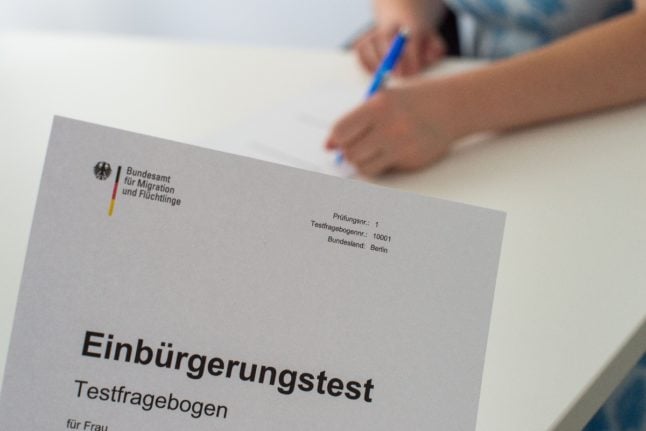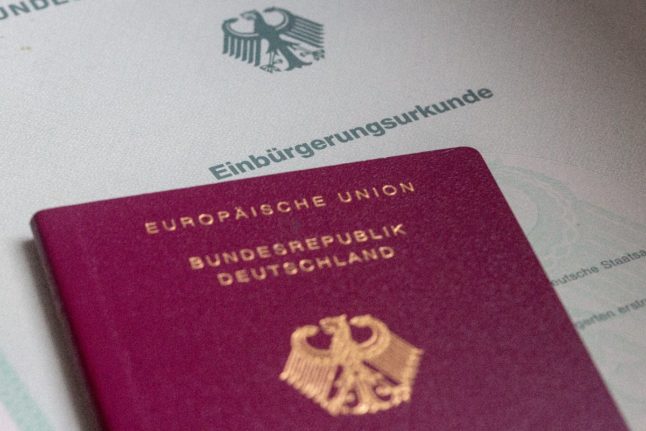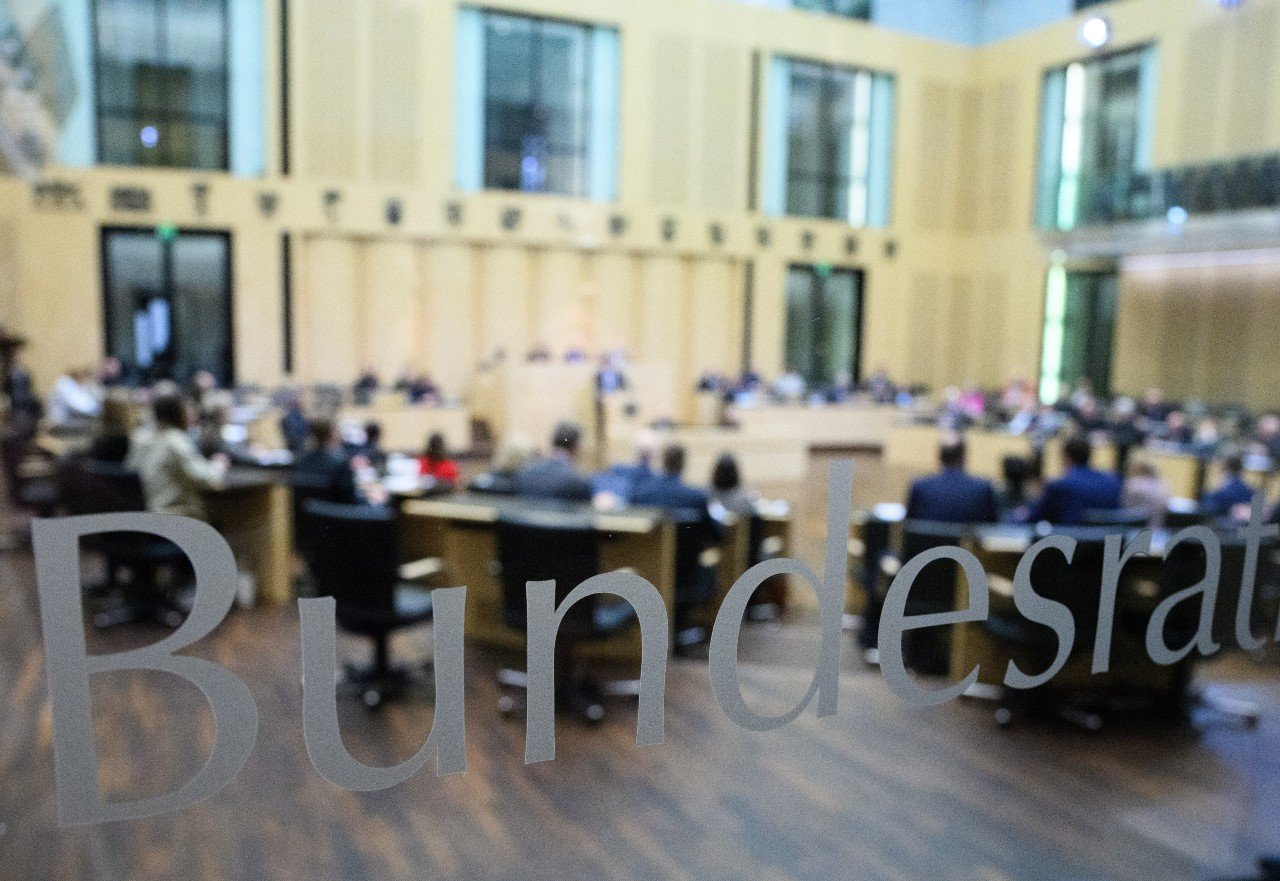Following the enactment of Germany’s new rules for gaining citizenship, which came into effect on Thursday, some international media outlets have reported that applicants for naturalisation will now need to “affirm Israel’s right to exist”.
US-based CNN, for example, ran an article on Thursday with the headline “Germany demands new citizens accept the state of Israel’s right to exist”.
On Tuesday the UK’s Financial Times had published a similar report titled “New German citizens must acknowledge Israel’s right to exist”.
While the information included within both articles was factually correct, their headlines were misleading.
Applicants are not explicitly required to affirm Israel’s right to exist
Perhaps the most important thing to note is that there is not a portion of the application process under the new law for German citizenship where the applicant needs to verbally state or sign a document acknowledging Israel’s right to exist.
However, as The Local has reported, the government has tightened the citizenship law against hate crime and anti-Semitism in the wake of war in the Middle East, with one federal state – Saxony-Anhalt- vowing to go further and requiring applicants to declare Israel’s right to exist.
This was pointed out by Berlin-based journalist James Jackson who took to social media to highlight how the Financial Times headline was misleading earlier this week.
This is misleading. The new citizenship test will include questions about Israel, but will not require a declaration of belief in Israel’s right to exist (as required in Saxony-Anhalt) as part of signing up to democratic values. https://t.co/T485ekmN2I
— James Jackson (@derJamesJackson) June 26, 2024
Nevertheless, The Local contacted the German government’s Interior Ministry (BMI) to ask them whether citizenship applicants would be required to declare their belief in Israel’s right to exist, as the headlines in the international media suggested.
In response, a BMI spokesperson pointed out that anyone who wants to be naturalised in Germany “must be committed to the values of a free society…”
The spokesperson added that “anti-Semitic, racist or other inhuman acts are incompatible with Germany’s Basic Law”.
In other words, anti-Semitic acts or statements could be grounds for rejecting a citizenship application.
Journalist James Jackson explained in a video on the issue that an example of this could be if someone had denied Israel’s right to exist in a social media post. This could be seen as reason to reject their citizenship application.
The BMI seemed to confirm this, adding: “If an applicant questions Israel’s right to exist, the citizenship authorities can investigate whether such statements are based on an anti-Semitic attitude”.
If examples of anti-Semitism are discovered, then the applicant could very well be rejected from being allowed to obtain German citizenship.
“An effective commitment to the free democratic basic order and to the special historical responsibility of the Federal Republic of Germany and an anti-Semitic attitude are mutually exclusive,” the BMI spokesperson said.
This lines up with Germany’s ‘Staatsrasön’ or “reason of state”, a political term that former Chancellor Angela Merkel used to emphasise that every government must be committed to “Germany’s special historical responsibility for Israel’s security”.
READ ALSO: What is Germany’s ‘Staatsrasön’ and why is it being talked about so much right now?
Applicants have to share Germany’s values
One part of Germany’s new citizenship rules are changes to the citizenship test, including the addition of questions that deal with the history of Judaism in Germany and anti-Semitism.
One of the added questions asks, “Which act relating to the state of Israel is prohibited in Germany?”
The correct answer is, “Openly calling for the destruction of the state of Israel”.
This is one of 322 questions that may appear in applicants’ German citizenship knowledge test. Some 33 are selected for each test, and applicants need to get at least 17 of them right to pass.
READ ALSO: ‘Special responsibility’ – Why Germany is shaking up citizenship test questions
Law tightened up around anti-Semitism
The change to the citizenship questions came after a political debate on whether or not potential citizens should be required to formally recognise the state of Israel’s right to exist.
In October 2023 – just a couple of weeks after Hamas’ terror attack on Israel and the outbreak of Israel’s war on Gaza – Christian Democratic (CDU) leader Friedrich Merz suggested adding a signed agreement acknowledging Israel’s right to exist to Germany’s citizenship application process.
READ ALSO: CDU leader calls for German citizenship to be allowed ‘only with recognition of Israel’
This sparked a debate on the constitutionality of collecting said document, which threatened to delay Germany’s citizenship reform even further.
Ultimately, a compromise was reached that included tightening rules against anti-Semitism for citizenship applications, but not requiring applicants to sign a direct statement acknowledging Israel’s right to exist.
German lawmakers have been keen to stress that anyone naturalising as German must have a commitment to Germany’s Basic Law and democratic values.
The spokesperson for the BMI echoed this in their statement: “Anyone who wants to be naturalised in Germany must be committed to the values of a free society.
“These include, in particular, the dignity and equality of all people. Anyone who does not share these values or even acts contrary to them may not become a German citizen.”





 Please whitelist us to continue reading.
Please whitelist us to continue reading.
Member comments